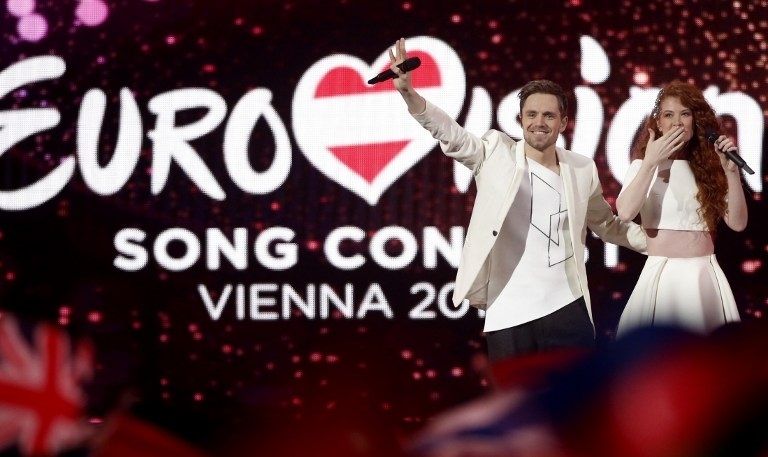Palestinian, Islamic State flags banned at Eurovision song contest

The Palestinian national flag and that of the Islamic State (IS) group will be banned from this year’s Eurovision Song Contest, the European Broadcasting Union (EBU) ruled on Friday.
The EBU has also banned flags from disputed territories including Crimea and Northern Cyprus.
"Particularly, the organisers request and urge the fan community to respect and appreciate the non-political nature of the Eurovision Song Contest," the EBU said in a policy statement on the flags.
All UN member states are allowed to have flags on display but Palestine only has observer status at the UN.
Eurovision said a draft version of the flag policy was published by mistake on the venue's website and that of the ticket agency selling seats for the extravaganza.
"The document included a non-exhaustive list of examples of flags that under the flag policy are prohibited in the venue. This document was not intended to be published," it said.
"The organisers apologise to everyone who feels offended by the list."
Eurovision spokesman Dave Goodman said that "the flag policy is not aimed against specific territories or organisations, and certainly does not compare them to each other."
Organisers have asked the venue and ticket agency to remove the offending document and post another official one without the examples.
Israel has competed in the yearly song contest 38 times since making its debut in 1978. It has won the title three times, most recently in 1998 when Dana International, a transgender singer, secured the top place with her hit Diva.
Palestine has never had a representative invited to the contest.
Rainbow flags, used frequently by the LGBT community, will be "tolerated," said the EBU, on the condition that they are "not to be used as a tool to intentionally make a political statement during the show".
Eurovision 2016 will take place in the Swedish capital of Stockholm, with the main event taking place on 14 May.
New MEE newsletter: Jerusalem Dispatch
Sign up to get the latest insights and analysis on Israel-Palestine, alongside Turkey Unpacked and other MEE newsletters
Middle East Eye delivers independent and unrivalled coverage and analysis of the Middle East, North Africa and beyond. To learn more about republishing this content and the associated fees, please fill out this form. More about MEE can be found here.

